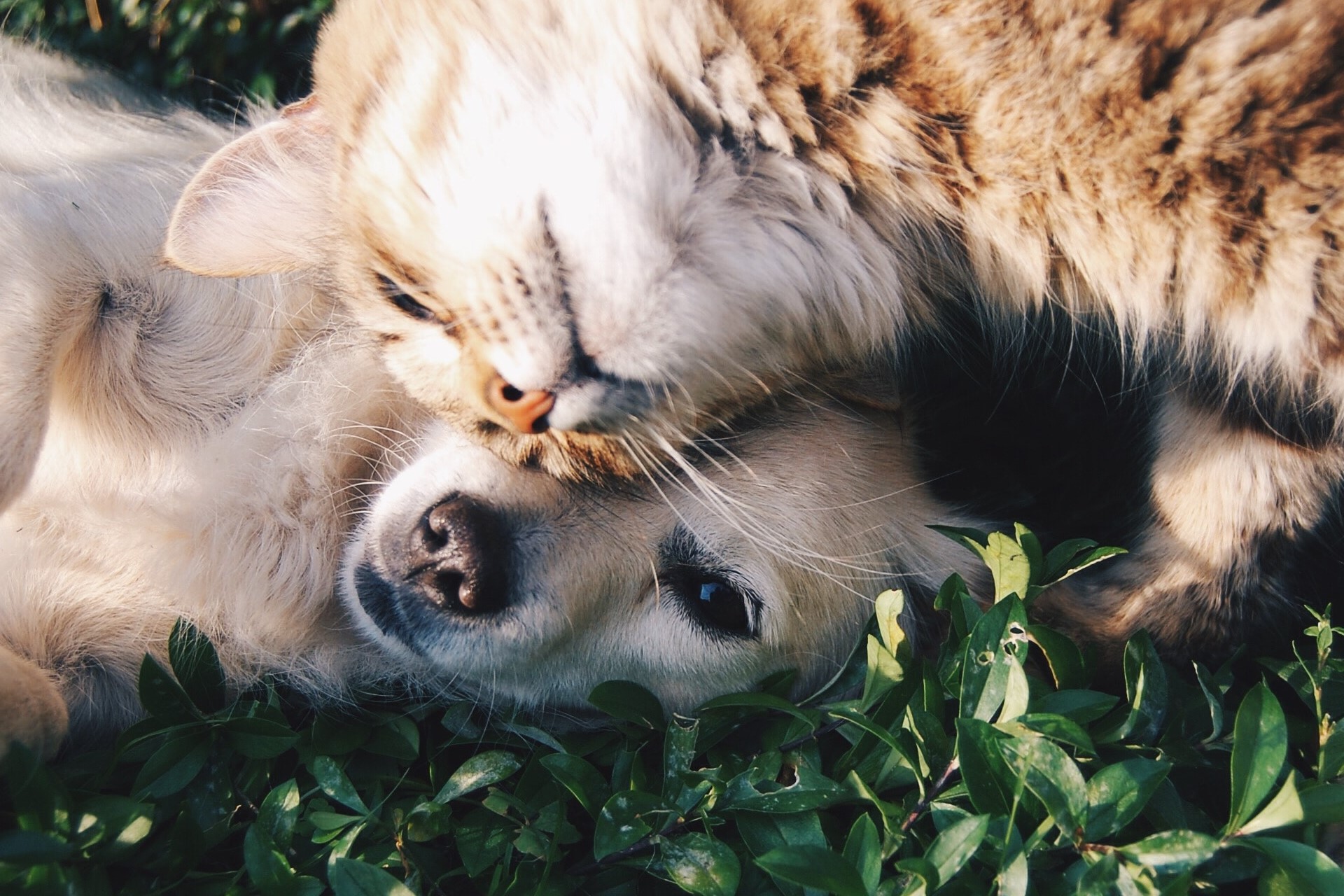
How Can Pets Be Sustainable
We are reader-supported. When you buy through links on our site, we may earn affiliate commission.
How can pets be sustainable? Pets affect the environment through factors like food production, waste and the carbon footprint of pet products. Making eco-friendly choices and being a responsible pet owner can help lessen these factors.
Sustainability in pet ownership means making eco-friendly choices like using environmentally-friendly pet products and managing pet waste responsibly. It helps reduce the impact on the environment, promoting a healthier environment.
Adopt, Don’t Shop
Over 50% of people worldwide are thought to have a pet in their homes. The pet breeding industry can contribute to environmental impact through resource-intensive practices. It involves substantial energy and water usage for breeding, pet products and waste management.
Additionally, the transportation of pets can contribute to carbon emissions. Adopting pets from shelters or choosing responsible breeders can minimize these environmental effects.
Benefits of Adopting a Pet from a Shelter
Here’s a list of benefits of adopting a pet from a shelter:
- Saving lives: Adopting pets from a shelter directly saves lives by providing a loving home to animals that may face euthanasia due to overcrowding.
- Ready for family living: Many shelter pets have previous experience living in homes, making them more adaptable to family life.
- Health screening: Shelters typically conduct health screenings, ensuring the pets are healthy before adoption.
- Preventing overbreeding: Choosing adoption over purchasing from breeders helps in the effort to reduce overbreeding, which can lead to various animal welfare issues.
- Building awareness: Adopting a shelter pet allows individuals to become advocates for animal welfare, raising awareness about the benefits of adoption.
- Companionship and emotional well-being: Shelter pets can provide friendship, emotional support and joy, contributing positively to the overall well-being.
- Setting an example: By adopting, individuals develop an example for others, encouraging others to consider it a compassionate and responsible choice.
How to Find a Responsible Animal Shelter or a Nearby Rescue Organization
There are a lot of rescue organizations and animal shelters out there, each with its approach to animal care and adoption. Approximately 43% of cats find homes through adoption from animal shelters or rescue groups and for dogs, the adoption rate is 40%. Finding a responsible one is crucial to ensure the well-being of the animals and a positive adoption experience.
Use online platforms like Petfinder, Adopt A Pet or local shelter directories to find nearby animal shelters and rescue organizations. Look for reviews or testimonials from people who have adopted the organization to gauge their reputation.
Visit nearby animal shelters in person to assess their facilities, cleanliness and the overall well-being of the animals. A responsible shelter will have a thorough adoption process, including background checks and ensuring the well-being of the animals.
Seek recommendations from family, friends or local veterinarians who may know reputable shelters. Don’t hesitate to ask questions about the organization’s policies. The medical care provided to animals and the background of the pets available for adoption.
Sustainable Pet Food Choices
Commercial pet food has a significant environmental impact due to resource-intensive production, sourcing ingredients linked to deforestation and emissions and generating waste through processing and packaging. Fish-based ingredients may contribute to overfishing and transportation adds to the carbon footprint.
Choosing sustainable pet food is essential because it helps protect the environment by reducing the impact of production, sourcing and transportation. It conserves resources, preserves biodiversity and contributes to mitigating climate change.
Opting for sustainable options also supports the ethical treatment of animals, encourages industry standards for responsible practices and promotes healthier pet nutrition. It’s a mindful choice that benefits both your pet and the planet.
Alternatives to Traditional Pet Food
Dogs and cats consuming meat contribute to approximately 64 million tons of carbon dioxide annually, having a climate impact equivalent to the emissions from driving 13.6 million cars for a year. Two alternatives to traditional pet food are plant-based diets and homemade diets:
1. Plant-Based Diets
Plant-based pet foods use ingredients like fruits, vegetables, grains and legumes as primary sources of nutrients. This diet can be suitable for pets with specific dietary restrictions or sensitivities.
However, ensuring the diet meets your pet’s nutritional requirements is essential, especially for crucial elements like protein and vitamins. A homemade plant-based meal could include cooked sweet potatoes, quinoa and a variety of vegetables like carrots, peas and spinach.
2. Homemade Diets
Homemade pet diets involve preparing food at home, offering greater control over ingredients. These diets may include a combination of lean meats, vegetables and grains.
While they allow customization, consulting with a veterinarian is crucial to ensure the diet meets your pet’s nutritional needs. Homemade diets can be time-consuming and require careful planning to maintain a balanced and healthy meal plan.
For dogs, a homemade meal can consist of cooked chicken, brown rice and a mix of dog-friendly vegetables like carrots and green beans. For cats, a homemade meal might include a blend of cooked chicken or beef mixed with organ meats and added cat-safe vegetables like pumpkin.
Eco-Friendly Pet Accessories and Toys
The United States produced nearly 300 million tons of waste in 2018. Traditional pet accessories and toys, often made of plastic and non-sustainable materials, contribute to environmental issues like plastic waste, carbon emissions from manufacturing and potential toxicity. Their short life span and limited recycling options worsen the impact.
Choose tough, long-lasting toys for your pets to reduce waste from constantly replacing them. Look for sturdy rubber chew toys, nylon bones and reinforced plush toys.
Durable rope toys with knots, hard rubber treat dispensers and long-lasting puzzle toys offer engaging play for your pet. Opt for toys made from sustainable materials to be eco-friendly.
Picking resilient options can help you save money and reduce environmental impact. Regularly check toys for wear and tear to ensure your pet’s safety.
DIY Projects for Eco-Friendly Pet Accessories
Creating eco-friendly pet accessories through do-it-yourself (DIY) projects, which is a rewarding and sustainable way to provide for your pets. Here are some simple DIY ideas:
- Cardboard scratching pad: Use cardboard scraps to create a homemade scratching pad for cats. Cut the cardboard into strips, stack and glue them together, then secure the stack inside a sturdy box.
- DIY rope toys: Make dog toys by braiding or knotting old ropes or fabric scraps. This provides an eco-friendly and durable option for your furry friend.
- Homemade catnip toys: Sew small fabric pouches and fill them with catnip for a simple yet entertaining DIY cat toy.
- DIY pet collar: Create a personalized pet collar using repurposed fabrics or old belts. Add your pet’s name or attach small fabric flowers for a decorative touch.
- Upcycled t-shirt pet bed: Transform old t-shirts into cozy pet beds by stuffing them with other fabric scraps or recycled filling.
Sustainable Pet Ownership
So, how can pets be sustainable? Making pets sustainable means making thoughtful choices in their care, from eco-friendly products to sustainable food options. By integrating these practices, pet owners can create a balanced and sustainable living environment for their pets and the planet.
Share on
Like what you read? Join other Environment.co readers!
Get the latest updates on our planet by subscribing to the Environment.co newsletter!
About the author
Steve Russell
Steve is the Managing Editor of Environment.co and regularly contributes articles related to wildlife, biodiversity, and recycling. His passions include wildlife photography and bird watching.





